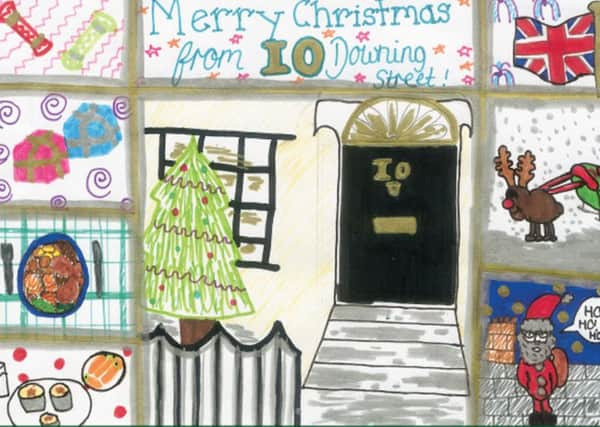Jayne Dowle: Christmas message to the greetings card refuseniks


I don’t understand why the two activities have to be mutually exclusive. Many of us manage to pull off the colossal twin feat of both supporting a good cause and writing out a pack of cards to family, friends and neighbours. It takes less than half an hour. I know this because I have just sat at the kitchen table and done it.
Also, I was brought up to believe that charity begins at home.
Advertisement
Hide AdAdvertisement
Hide AdIf you can’t send out kind thoughts to the people you like best at this time of year, when can you do it?
Am I missing the point?
Does announcing to the world that your intentions are on a higher pedestal than the pursuit of mere commercialism somehow mark you out as a better person?
I find this explanation questionable.
It’s perfectly possible to go to a high street card shop and spend £10 on five be-glittered and bejewelled Christmas cards that even the Kardashians would find tastefully questionable. However, you can also purchase any number of very reasonably-priced cards which support any charity of your choice from a range of outlets. In the Card Factory, I even found two packs of cards for one pound with proceeds going to Macmillan Cancer Support.
That, if evidence was needed, proves that “giving to charity instead” is an elaborate ruse to get out of the job. It also makes for social awkwardness. If you write cards yourself, how do you deal with these refuseniks?
Advertisement
Hide AdAdvertisement
Hide AdPersonally, I blithely carry on sending even if I don’t expect one back in return. Just as giving a donation to support llama farming in Africa is a personal decision, so is the practice of sending a card if I feel like it. I won’t be guilt-tripped into giving up something I enjoy doing.
When I step back from the stamps and envelopes though, I find it all very confusing. On the one hand we have public figures such as politicians promoting and celebrating the tradition. Many column inches have been expounded of late in close analysis of why Prime Minister Theresa May’s first Christmas cards in office are so different to those of her predecessor David Cameron.
Like many MPs this year, she’s jettisoned the cheesy family shot in favour of a competition for schoolchildren to come up with the best design. In Hull North, for example, where Diana Johnson is the Labour MP, the lucky winner even got a trip to Downing Street as part of her prize. Maisie Sykes, who is seven, produced a design featuring the Ms Johnson herself and the Houses of Parliament.
Lucky Maisie. She is clearly growing up with the understanding that Christmas cards hold a meaning which goes beyond Christmas itself. Ever since they were invented – in the Victorian age – they have served as a shorthand. Not just as a way of keeping in touch, but as a way of signalling status and state of mind.
Advertisement
Hide AdAdvertisement
Hide AdI wonder whether anxieties over this are a contributory factor to their decline. I know people so worried about what kind of message they will transmit to the recipient that they shy away from the whole exercise. Why worry? It really is the thought that counts, not the fact that the robin on the front looks slightly tipsy.
Then, on the other hand, we have those who will send a card to welcome the arrival of a new dog in a family (yes, I’ve seen it).
Those who seek out the fanciest hand-made cards for birthdays, weddings and civil partnerships. Not to mention the individuals who spend hours standing in the card shop looking for the perfect “verse” or witty pun to express their feelings towards another on a special occasion. Yet ask them if they are sending Christmas cards this year and they are likely to tell you that they don’t bother with them any more.
The irony is that the British greetings cards industry has never had it so good. According to the most recent figures from the Greeting Card Association, the value of the market went up five per cent from 2014 to 2015. It’s now worth £1.5bn, with 880 million single cards being sold in this period.
Advertisement
Hide AdAdvertisement
Hide AdIn addition, around 900 million Christmas cards were sold in boxes and packs last year. If half the country appears to be giving a honourable donation to charity instead, what’s happening to all these cards? Are they loitering in cupboards or drawers because the person who bought them simply never got round to writing them?
It’s too late for this December, but I’m launching a personal campaign to bring back sending the Christmas card next year. I sincerely hope that the tide will turn. And that the people who can still find the time to do it won’t feel guilty or awkward. It costs virtually nothing and the rewards are immeasurable. That’s why I say, write a few lines, keep in touch and spread the love.